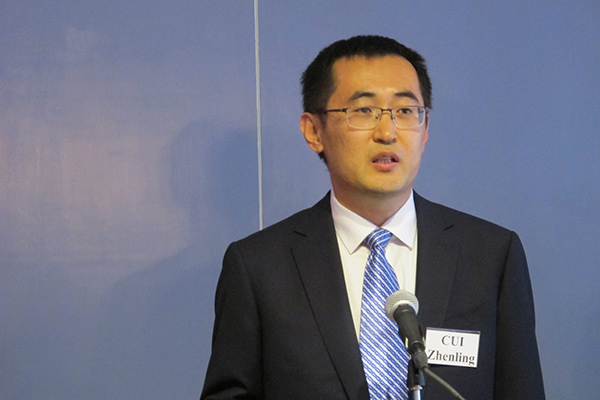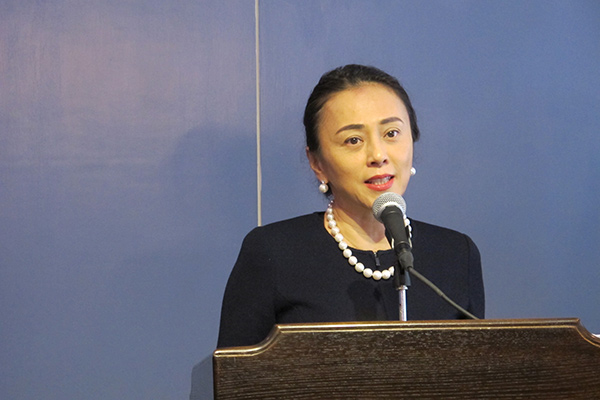Chinese researcher wins Norman Borlaug Award
By Chen Liubing | chinadaily.com.cn | Updated: 2017-09-30 09:36
 |
| Cui Zhenling, a research scientist at China Agricultural University, is recognized as the 2017 recipient of the Norman Borlaug Award for Field Research and Application on Sept 29 at the residence of the US Ambassador to China in Beijing. [Photo by Chen Liubing/chinadaily.com.cn] |
The World Food Prize Foundation announced that Cui Zhenling, a research scientist at China Agricultural University, is the 2017 recipient of its Norman Borlaug Award for Field Research and Application on Sept 29 at the residence of the US Ambassador to China in Beijing.
The award, endowed by the Rockefeller Foundation, recognizes exceptional, science-based achievement in international agriculture and food production by an individual under 40.
"This is the sixth year that the award has been given, and past winners have come from India, Africa and Central America," said Li Yifei, member of the foundation's board of trustees. "I am so pleased that this year's recipient is from China."
 |
| Li Yifei, member of the board of trustees of the Rockefeller Foundation, speaks at the ceremony in Beijing on Sept 29, 2017. [Photo by Chen Liubing/chinadaily.com.cn] |
Cui, 39, is being honored for his research and extended work improving soil health and increasing crop production through the implementation of innovative on-farm fertilizer management strategies. His innovations, developed in close conjunction with farmers, have led to improved nitrogen efficiency, resulting in higher maize and wheat yields throughout the North China Plain, while simultaneously reducing soil degradation and water pollution, impacting thousands of farmers in China.
"Both of my parents are farmers, and they are the reason why I started research in agricultural science," said Cui at the ceremony. "They are not only my parents, but also my mentors in life."
Cui's environmentally sustainable innovations have been a critical component of the country's efforts to pursue higher grain yields, and have been widely adopted by local governments in recent years as well as in the National Soil-Testing and Fertilizer Recommendation Projects.
























